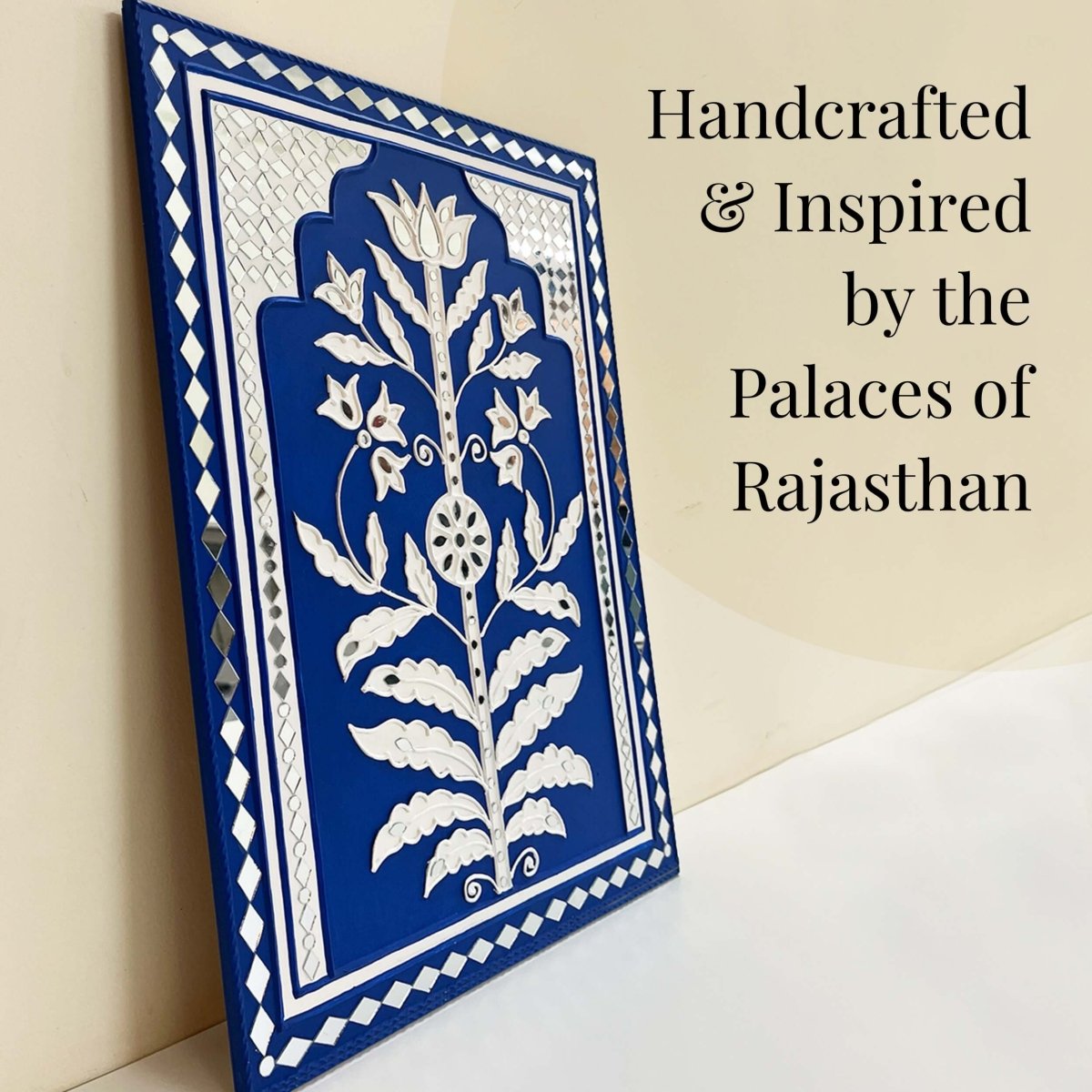V P Menon: A Patriot Among Princes
BOOKMARK
V P Menon is often described as Sardar Vallabhbhai Patel’s ‘right-hand man’. While he never hesitated to express his own views or a dissenting opinion, Menon served with utter loyalty. It was this quality along with his prodigious intellect and quiet efficiency that drew Patel to Menon, on whom he came to rely a great deal.
The admiration was mutual, for what Menon appreciated most about Patel was that he was a man of the masses, who never lost sight of his roots. He also believed that Patel was best suited to be India’s Prime Minister.
The two men knew each other well for, Menon, besides being Reforms Commissioner to the last three Viceroys in India, was also Secretary in the States Ministry and worked closely with Patel on integrating the Princely States into the Union of India.
In this excerpt from V P Menon: The Unsung Architect of Modern India (2020) by his great-granddaughter, Narayani Basu, we return to the formation of India's Interim Government in 1946, why Vallabhbhai Parel chose V P Menon as his aide, and the mutual respect that developed between these two towering statesmen.
VP WAS RIGHT. To begin with there was a difficulty in the distribution of government portfolios. “At that time,” VP recalled, “Sardar had the portfolio for IB and Home. It was suggested to him that the portfolio be divided, and that Home be given to Liaquat (Ali Khan). Sardar refused point blank to have his own portfolio taken from him. He said that if this was what was going to happen, then he would resign. That is when they decided to give Finance to Liaquat instead.” Yet another problem arose with the appointment of Jogendra Nath Mandal, as the League’s only Dalit member. Mandal was given the law portfolio, much to VP’s indignation. “This Mandal knew nothing of the law,” VP told Hodson, “When Sir George Spence met me after meeting him, he told me, ‘VP, what a fall—from Macaulay to Mandal!’” However, it was more than a question of the erudition of the men involved. This was a rapidly dissolving coalition and within days of its formation, camps had already been formed.
While the game of politics played out, yet another momentous shift was occurring in VP’s career. The Home Minister, Sardar Patel, was now working out of 1 Aurangzeb Road, his home and official headquarters, and the address which headlines most of VP’s official letters after 1946. The new role demanded new things of Patel—and it wasn’t long before the variety, volume, size and complexity of the files presented to him began to overwhelm him. He needed good young associates, upon whom he could rely to be swift and unerring in their reactions, assessments and draftsmanship. The first of his appointments was a young ICS officer from within the Home Department of British India, named Vidya Shankar. Shankar would eventually go on to serve as Patel’s private secretary for the duration of the Sardar’s time in government. The next appointment was that of VP Menon. VP would always, of course, retain his official status as Reforms Commissioner and eventually, as Constitutional Advisor to the Governor-General of India. However, after the formation of the interim government it was widely known that VP was Sardar Patel’s right hand man. This is how he is remembered to this day. It is a lazy and inaccurate description of a man who never was, and never would be, anyone’s “man” but his own. He was loyal to the governments he worked for. He had appreciated many of the individuals who, in the course of his career, he reported to but he never subordinated his own opinions to anyone else’s. And it was this quality—of freely expressing a dissenting or different point of view, of identifying a problem and suggesting a solution but once a decision had been taken by the government, however much he may have disagreed with it, of implementing it with tenacity—that the Sardar came to rely on. Patel hadn’t forgotten VP’s ploys to get him to push for the Congress’ acceptance of the Viceroy’s offer for interim government.
– He had heard of VP’s abilities, his intelligence, his capacity for excellent drafting and of utilising technical and legal clauses in the best interests of the government he was serving.
Although H.M Patel (Defence Secretary in independent India) was also an unofficial aide to the Sardar, it would be VP to whom Patel turned to the most and it was VP whom he most trusted. Theirs was an association that VP still talked of long after the Sardar was dead and he himself was retired. His two seminal books on The Transfer Of Power in India and The Story of the Integration of the Indian States are dedicated to Patel. The Sardar was no refined member of the elite. He was a man of the people. He knew how to take action—his decisions were swift and he had foresight. “You never heard him asking, “What should I do about such and such a situation?” recalled H.M. Patel. “He knew what he had to do and he went ahead and did it.” To the men who would serve as his aides, he was open and unreservedly frank. Shankar was in charge of Patel’s daily agenda. VP was in charge of the political side of things—to keep the Sardar apprised of any rumours or information he might hear via his wide network of contacts.
In VP’s eyes, Patel was a refreshing change in the style of leadership that the country seemed to favour. He preferred to work either in silence or keeping to the barest of minimum as far as speaking was concerned. His orders were clear and he had the ability to distill a voluminous file down into a succinct paragraph or two. His instinct for anticipating both disaster and success and his political foresight were talents that VP admired unreservedly, as was his ability to remain calm under pressure. While he had decided opinions of his own, Patel rarely allowed prejudice to bleed into his decisions. He was as clear-eyed about another’s positive qualities as he was about his own negative facets. “Yes,” he used to say, with customary abruptness, “I am called a fascist and I know it … Is it fascism to carry out disciplinary measures which are subject to the scrutiny of the Working Committee?”
– The story of the rise of Vallabhbhai Patel was, even then, legendary but to VP, what appealed was that the man never lost sight of his roots. He was, first and always, a man of the masses.
His rise through the Party ranks was one that VP appreciated—he had been as much of a grassroots worker as he had been a leader. Throughout the 1930s and 1940s, he might have stayed well in the background, but his work had been the kind that lays a foundation and builds upon it. Fourteen years older than the younger Jawaharlal, Patel was harder, but much wiser. To all his aides, from Munshi to Shankar, and from H.M. Patel to V.P. Menon, he advised that it was best to be guided by one’s own convictions. The quality of ruthlessness that had shaken him in Simla was a quality that he knew India needed, applied skillfully and in required doses. Like Ramakrishna Bajaj who noted, “Sardar’s ruthlessness was always an impersonal thing. It was always in the national interest,” VP came to see Patel’s “ruthlessness” and “fascism” for what they actually were: pragmatism and unyielding loyalty to his country. The lawyer in Patel was very much alive and both VP and Vidya Shankar would recall moments in their association with the Sardar where they were commanded never to commit themselves in writing. There must be no drafts or memos written unless they were absolutely sure of what they wanted to say. If there was even the slightest doubt, there must be a loophole left somewhere in the text of the said draft or memo, which they might use to escape later. It was advice that was as sharp as it was wise, and spoke of a man who was much more suited to Indian politics than the man nominated to be independent India’s Prime Minister. VP certainly thought Patel far better suited to be Independent India’s Prime Minister than Nehru. It was, perhaps on this account Wavell took to referring to “Little Menon”, quite inaccurately, as Patel’s “mouthpiece.” VP never presumed to speak for the Sardar. What he did do, as a loyal civil servant, was to relay his impressions of what he believed to be Patel’s views.
Excerpted (with photos) from V P Menon: The Unsung Architect of Modern India by Narayani Basu, and published by Simon & Schuster India in 2020.
This article is part of our special series the ‘Making of Modern India’ through which we are focussing on the period between 1900-2000. This century saw the birth and transformation of India. This series aims to chronicle India’s exciting journey and is a special feature brought to you by LHI Foundation.









